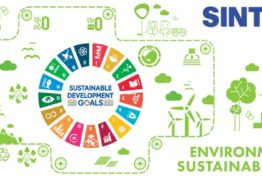Green jobs: what you need to know
The term “green jobs” has gone from being a great unknown to the average person to being on everyone’s lips. The reason is more than obvious: the need to preserve the planet has led to the creation of new sectors – and professions – capable of slowing down climate change and promoting the transition towards a more circular economy. Undoubtedly, an opportunity to care for the environment, to activate the labour market and, in short, to guarantee the well-being of people and the ecosystem.
Benefits of green jobs
Green jobs, also known as environmental jobs, offer many advantages both to the professionals who develop them and to the society that benefits from them. By focusing on areas such as renewable energies, energy efficiency, recycling and sustainable resource management, they not only contribute to reducing environmental impact, but also to combating climate change.
But this, while important, is not the only benefit of green jobs. The transition to a more sustainable and environmentally friendly economy creates new job opportunities and fosters long-term job creation. This means more jobs, but also greater economic stability for individuals and communities.
What types of green jobs are there?
Green jobs cover a wide range of production sectors and professions related to sustainability and environmental preservation. Some of the most prominent are:
- Renewable energies: environmental jobs related to the installation, maintenance and development of clean energies such as solar, wind, hydroelectric and geothermal energy. According to a report by the International Renewable Energy Agency, renewable energies could generate more than 460,000 green jobs in ten years.
- Energy efficiency: professions aimed at reducing energy consumption and improving efficiency in buildings, industry and transport.
- Waste management and recycling: green jobs focused on the proper management of waste, including recycling, reuse and disposal. Currently, 26% of green jobs in Spain come from this sector.
- Sustainable agriculture: green jobs related to agricultural practices that minimise environmental impact and promote the production of healthy and sustainable food. This type of food is increasingly in demand by a society that is aware of the need to take care of the planet and its health.
- Sustainable mobility: work focused on the development of clean and efficient transport systems, such as the production of electric vehicles and the planning of sustainable transport infrastructures.

What training do I need?
Training for environmental jobs varies depending on the sector and the job position to be filled. Some positions may require specific technical or university training, while others may offer on-the-job learning opportunities or additional training. As these are new sectors, few people have the specific skills to perform these professions and many companies offer training to their future workers.
Although companies can train their team of professionals, it is important to have knowledge in areas such as renewable energy, environmental management, energy efficiency and sustainability. In addition, continuous training and keeping up to date with the latest trends and developments in the sector are key to staying current in the green jobs field.
How important is training in the sector?
Education plays a key role in the green jobs sector. As these professions are new and constantly evolving due to the rapid development of technologies, a solid and up-to-date education is essential.
Training not only provides you with the knowledge you need to perform your job efficiently, but also enables you to adapt to changes and take advantage of emerging opportunities in the sector. In addition, training in green jobs provides skills and competences that are highly valued by employers, increasing your chances of employability and career growth.

Overall impact on the economy
The development of environmental jobs has a major impact on the wider economy. They are jobs that generate investment, stimulate economic growth by boosting sustainable industries and promote innovation.
In addition, green jobs foster job creation at the local and regional level, strengthening communities and improving people’s quality of life. Not only that: investing in green jobs can also help boost social equity, creating job opportunities in disadvantaged areas such as rural or deprived areas and promoting a fairer distribution of economic benefits.
The transition to a green economy can also reduce dependence on non-renewable resources and reduce the volatility of energy prices.
In conclusion, green jobs are booming and bring benefits for the environment, people and the economy in general. To be part of this sector, it is essential to acquire the necessary training and keep up to date with the latest trends and developments. Environmental jobs not only offer stable and secure job opportunities, but also contribute to building a sustainable and green future.













